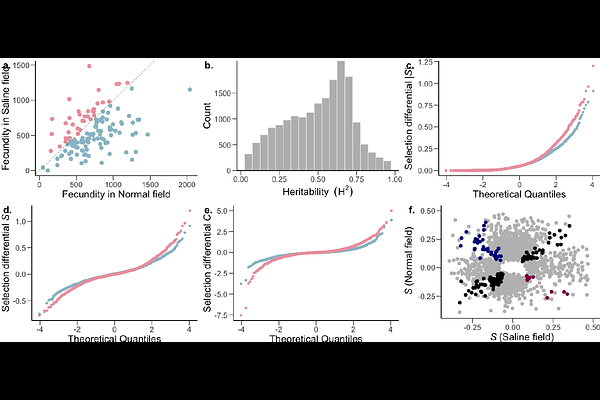System genomics of salinity stress response in rice

System genomics of salinity stress response in rice
Gupta, S.; Niels Groen, S.; Zaidem, M. L.; Sajise, A. G. C.; Calic, I.; Natividad, M.; McNally, K.; Vergara, G. V.; Satija, R.; Franks, S. J.; Singh, R. K.; Joly-Lopez, Z.; Purugganan, M. D.
AbstractPopulations can adapt to stressful environments through changes in gene expression. However, the role of gene regulation in mediating stress response and adaptation remains largely unexplored. Here, we use an integrative field dataset obtained from 780 plants of Oryza sativa ssp. indica (rice) grown in a field experiment under normal or moderate salt stress conditions to examine selection and evolution of gene expression variation under salinity stress conditions. We find that salinity stress induces increased selective pressure on gene expression. Further, we show that trans-eQTLs rather than cis-eQTLs are primarily associated with rice\'s gene expression under salinity stress, potentially via a few master-regulators. Importantly, and contrary to the expectations, we find that cis-trans reinforcement is more common than cis-trans compensation which may be reflective of rice diversification subsequent to domestication. We further identify genetic fixation as the likely mechanism underlying this compensation/reinforcement. Additionally, we show that cis- and trans-eQTLs are under different selection regimes, giving us insights into the evolutionary dynamics of gene expression variation. By examining genomic, transcriptomic, and phenotypic variation across a rice population, we gain insights into the molecular and genetic landscape underlying adaptive salinity stress responses, which is relevant for other crops and other stresses.